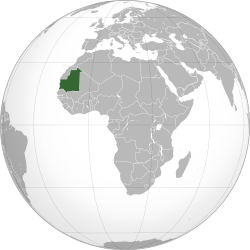Mauritania: Imams Learn To Counter Bigotry
By Magharebia
By Jemal Oumar
The first batch of Mauritanian imams recently graduated from a programme aimed at creating a discourse to counter religious extremism.
“The Higher Institute of Islamic Studies and Research in Mauritania wanted to meet the urgent needs of Mauritanian society for highly trained imams and khatibs, who are qualified to play their role in education and guidance in the best possible way and capable of meeting the demands of current era,” Dr Bechir Ould Ndida, the head of the Department of Imamate, said at the July 14th ceremony.

The Department of Imamate was created in 2010 to promote religious moderation among young people.
The programme “also embodies the principle of harmonisation between the training and the needs of labour market”, according to Ould Ndida.
It enables distinguished preachers to “stand up against all forms of extremism and promote the message of mosques through specialised scientific research, serious studies and training”, he added.
“We’re attaching great hopes on this batch of graduates to preserve the genuine Islamic identity of the Mauritanian society and enhance its culture locally, regionally and internationally,” Ould Ndida concluded.
As the first batch of programme graduates, the imams must “shoulder a major part of responsibility towards the society whose members need guidance”, according to their representative Larabass Ould Moustapha.
“The imam and khatib must have the ability of persuasion, modern means of expression and be familiar with the modern means of communication,” he added. “This is in addition to knowledge of what young people think of so that he can guide them to the road of moderation, production and success and help them avoid deviation from the right track.”
For his part, former Minister of Religious Affairs Ahmed Vall Ould Saleh said, “The role of the Higher Institute of Islamic Studies and Research in Mauritania is always represented in serving society and presenting permanent solutions for its religious and worldly problems.”
It is “one of the oldest educational institutions that date back to the birth of the Mauritanian state”, he added. The Department of Imamate was created as a result of the spread of “extremist deviant ideology”.
“Religious graduates must think about the huge responsibility that the imam and khatib must shoulder, which requires them to always do research, boost their knowledge and share experiences with others, whether at other universities, religious circles or other specialisations,” Ould Saleh said.
Imam Sidi Ibrahim said he was “proud” to be in the first batch of graduates.
“This training has enabled me to see the difference between traditional imam who didn’t learn in a methodological way and the imam who received methodological lessons involving Sharia sciences, mechanisms of persuasion and communication with the other,” he explained.
“All graduates realised that the failure of many imams in getting the message across is due to their lack of the mechanisms of communication,” he added. “Therefore, they may make young people ignore them and issue judgments that don’t serve moderation. More importantly, some of those imams may push young people towards extremism by talking about things they don’t understand well because of their lack of knowledge.”
